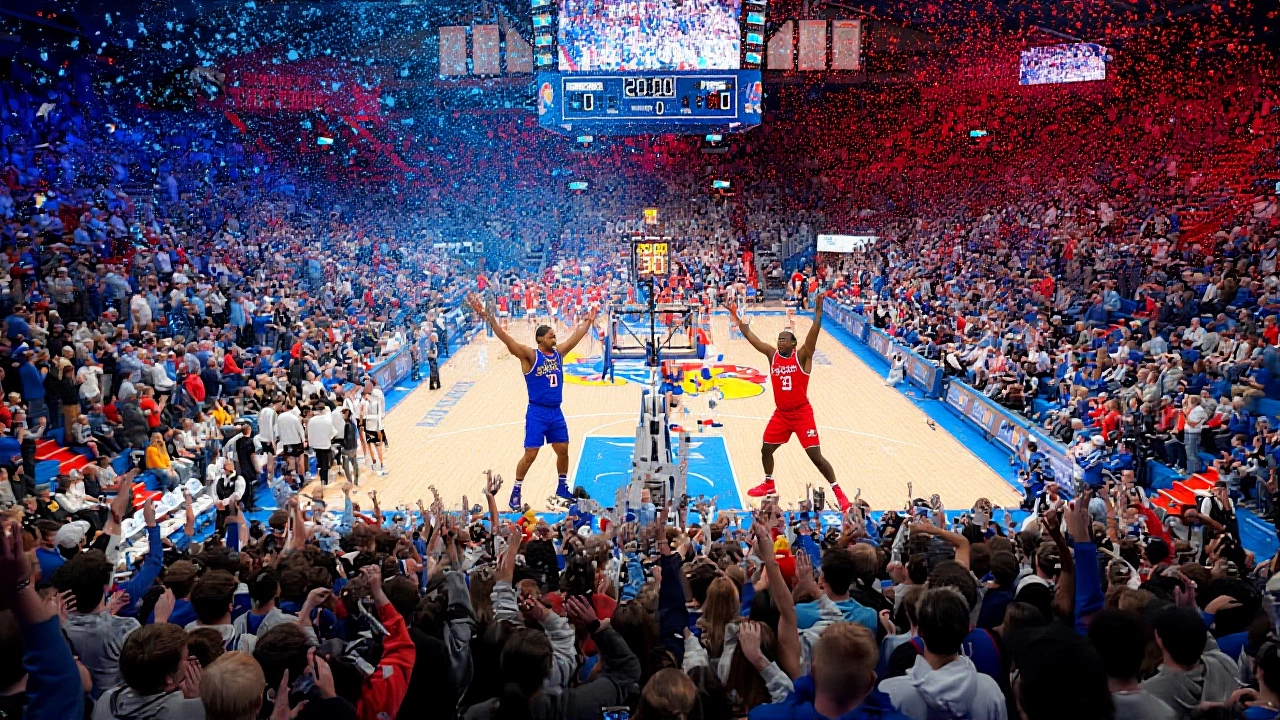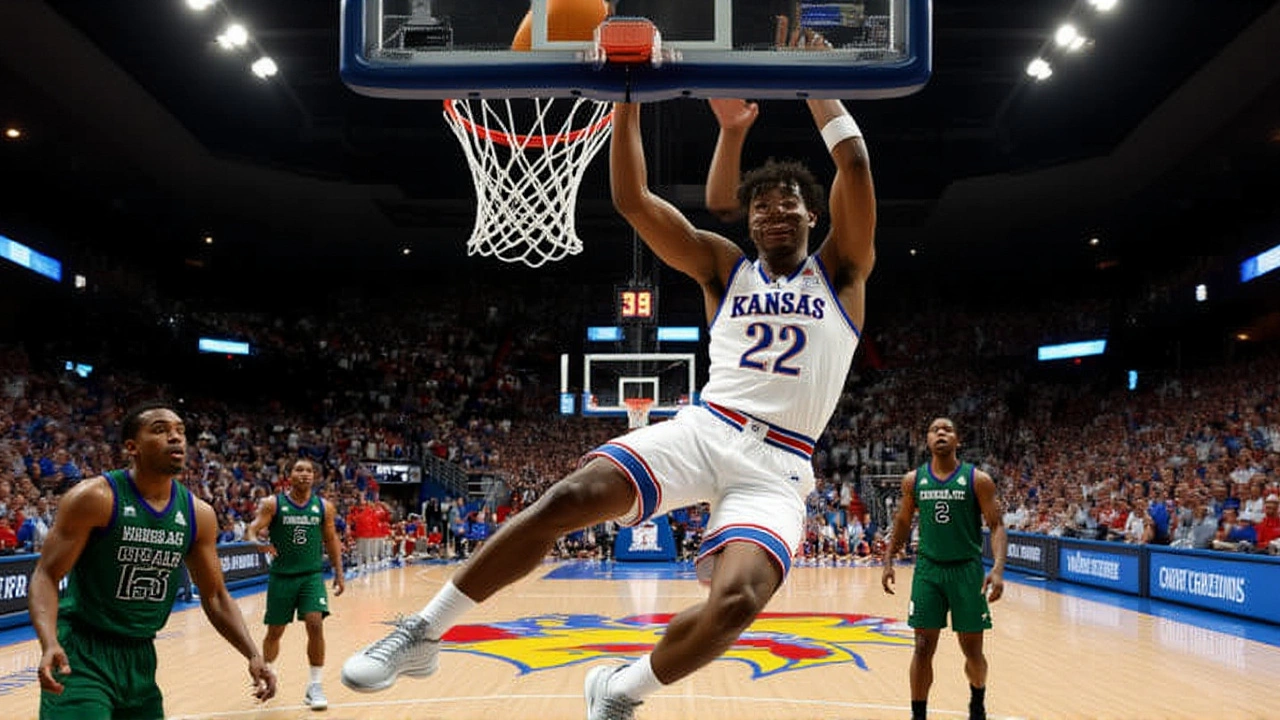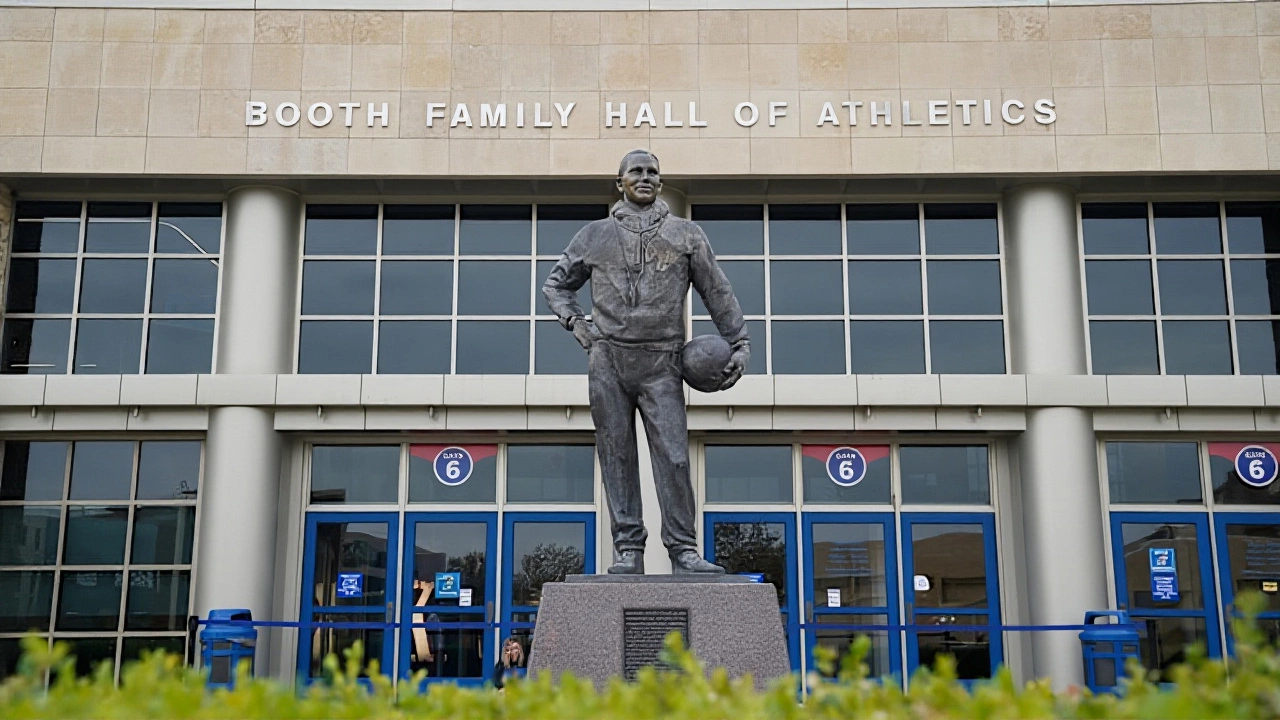On November 7, 2025, the University of North Carolina Tar Heels finally exorcised a ghost that had haunted their program for over two decades. In front of a roaring, all-white crowd at the Dean E. Smith Center in Chapel Hill, North Carolina, the No. 25 Tar Heels crushed the No. 19 University of Kansas Jayhawks 87-74, snapping a 23-year losing streak that stretched back to November 27, 2002. The win wasn’t just another regular-season upset—it was a catharsis. For a generation of fans, this game felt like closing a wound. For the players? It was proof they could rise above history.
The Weight of History
No one on the current UNC roster was even born when the Tar Heels last beat Kansas. The last time UNC won? George W. Bush was president. Roy Williams was still coaching Kansas. And Hubert Davis? He was a rookie NBA player, not yet the head coach who would inherit this burden. The losing streak wasn’t just long—it was brutal. Kansas had won five straight meetings, including four in the NCAA tournament. Two of those came in the Final Four: the infamous 2008 game where Kansas raced out to a 40-12 lead, and the 2022 national championship game, where Davis, in his first season as head coach, watched his team collapse down the stretch. That loss still stings. So does the 2012 Elite Eight defeat. And the 2019 game in Lawrence, where UNC blew a 17-point lead. This wasn’t just a rivalry. It was a psychological trap.
A Whiteout and a Wake-Up Call
Freshman sensation Caleb Wilson didn’t just score 24 points—he ignited the atmosphere. Days before the game, he posted a simple message on social media: "Whiteout Friday. Be loud. Be proud." The response? Over 15,000 fans showed up in white jerseys, turning the Smith Center into a sea of noise. "I told the guys in the locker room," said guard Seth Trimble, "we represent this university tonight. We protect our floor. We’re not losing." And they didn’t. After trailing 42-38 at halftime, UNC came out with a ferocity that stunned Kansas. They switched to a full-court press, forced 14 turnovers in the second half, and turned defense into offense. The Jayhawks, who’d been 12-1 in November games since 2020, looked rattled. Their shooters went cold. Their big men got trapped. And UNC? They hit 11 of their 16 three-pointers after halftime.
Hubert Davis: The Man Who Had to Break the Curse
Head coach Hubert Davis didn’t just want to win. He wanted his team to feel what it meant to win this game. "I wanted this new group to have evidence of what it’s like to play in a game like this," he said afterward. "To come up big in the Smith Center. To have the weight of history on your shoulders—and still deliver." Davis, a former UNC All-American under Dean Smith, carried the emotional weight of this rivalry. He’d watched Williams, his mentor, leave Kansas to return to Chapel Hill in 2003. He’d seen the same coaches, the same traditions, the same pride—and the same losses. Now, he was the one leading the charge. And when the final buzzer sounded, he didn’t celebrate. He hugged his assistants, then walked straight to the UNC student section, nodding slowly, as if to say: "We did it. Together."

A Rivalry Rooted in Legends
The connection between these two programs runs deeper than wins and losses. It’s woven into coaching DNA. Roy Williams, who coached Kansas from 1988 to 2003, returned to UNC as head coach in 2003 after spending 19 years as an assistant under Dean Smith—the architect of UNC’s basketball identity. Meanwhile, Larry Brown, who won a national title at Kansas in 1988 and coached at UNC as an assistant in the 1970s, is a living bridge between both schools. Even the first meeting between the two teams, on March 23, 1957, ended in heartbreak for Kansas—a 54-53 loss in the NCAA tournament. That game? It was the same tournament where UNC won its first national title under Smith. Now, after 68 years, the series stands at 7-7 according to Kansas’s records. UNC’s official tally still reads 2-5, but that’s about to change. With this win, the Tar Heels have a new winning streak—and a new narrative.
What This Means for UNC’s Season
Before Friday night, UNC had lost eight of nine games against AP Top 25 teams in the 2024-2025 season. They’d been outscored by an average of 11.3 points in those losses. This wasn’t just about Kansas. It was about proving they belonged among the elite. Now, with a signature win under their belt, the Tar Heels have momentum. Their next five games are against non-ranked opponents—but the confidence? That’s priceless. "This win doesn’t mean we’re a top-five team," Davis said. "But it means we believe we can beat anyone. And that’s the first step."

What’s Next?
Kansas, still ranked, heads into Big 12 play with questions. Can they recover from this emotional loss? Meanwhile, UNC’s schedule tightens in December with games against Duke and Kentucky. But for now, the Tar Heels have something they haven’t had since 2002: a win over Kansas. And the players? They’re already talking about next year’s rematch in Lawrence. "We’re not letting this be a one-time thing," said Wilson. "We’re making this our house."
Frequently Asked Questions
Why is this win so significant for UNC fans?
For 23 years, UNC fans had watched Kansas dominate them—especially in big games. Four of Kansas’s five straight wins came in the NCAA tournament, including the 2008 and 2022 Final Fours. This wasn’t just a rivalry loss; it was a symbol of UNC’s inability to close against elite teams. Beating Kansas at home, with a dominant second half, finally broke that psychological barrier.
How did Caleb Wilson’s social media post impact the game?
Wilson’s "whiteout" call went viral among UNC students and alumni, leading to a sold-out, deafening crowd in white jerseys. The energy was electric, and Kansas players admitted afterward they felt overwhelmed by the noise. The turnout wasn’t just symbolic—it was strategic, helping UNC’s defense feed off the home crowd’s momentum during their second-half surge.
What role did Roy Williams play in this rivalry?
Roy Williams coached Kansas from 1988 to 2003, then returned to UNC as head coach in 2003 after serving as Dean Smith’s assistant. He’s the only coach to lead both programs to national titles. His presence created a unique emotional layer to the series—fans on both sides felt he "belonged" to both schools. His legacy loomed large over this game, even though he’s now retired.
How does this win affect UNC’s NCAA tournament chances?
This victory gives UNC a signature win over a Top 20 opponent on their home court—exactly the kind of resume boost the Selection Committee looks for. After going 1-8 against ranked teams last season, this win immediately elevates their profile. It also proves they can win close, high-pressure games, which is critical for March.
Why did Kansas struggle in the second half?
UNC switched to a full-court press and aggressive zone defense, forcing Kansas into rushed shots and 14 second-half turnovers. Kansas’s guards, who had been efficient in the first half, became hesitant. Their top scorer, junior guard Malik Johnson, went 2-for-10 after halftime. The Tar Heels’ length and energy overwhelmed them, something Kansas hadn’t seen from a non-Top 10 team all season.
Is this the start of a new era for UNC basketball?
It might be. After years of rebuilding under Davis, this win signals a shift in culture. The team played with grit, confidence, and unity. Freshmen like Wilson are stepping up. Veterans like Trimble are leading. And for the first time since 2017, UNC fans believe they can compete with the very best. The road ahead is tough—but now, they believe they can win the big ones.
